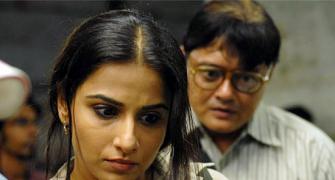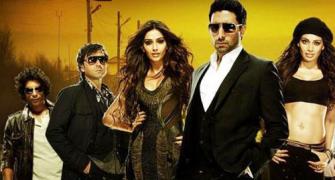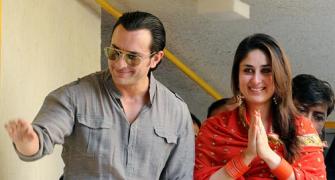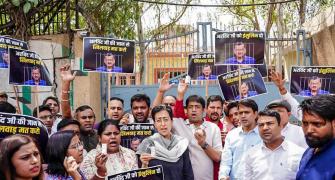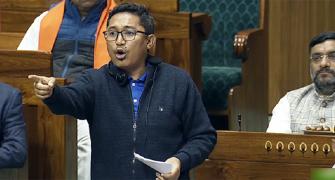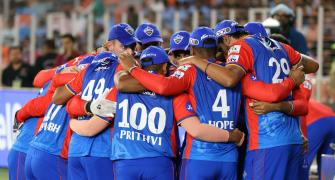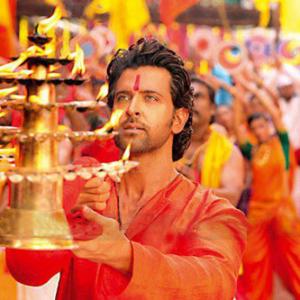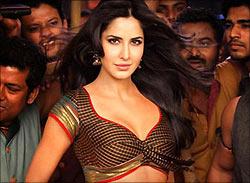 It is all too easy to blame Bollywood, notes Aseem Chhabra, just as many politicians are now saying that young women should not step out late at night or wear Western clothes, suggesting that leads some men to become rapists.
It is all too easy to blame Bollywood, notes Aseem Chhabra, just as many politicians are now saying that young women should not step out late at night or wear Western clothes, suggesting that leads some men to become rapists.On New Year's Eve, activists who had signed the online petition to stop Yo Yo Honey Singh's performance at a hotel in Gurgaon, claimed big success.
The show was cancelled. although it is not clear who made the final decision.
The hotel and Singh's representative each claimed it was their decision, whether in deference to the 23-year-old victim of the gang-rape or for other practical reasons.
Then someone filed a First Information Report against Singh in Lucknow.
Singh now says that he never wrote or sang those offensive lyrics. Well, then it is not clear who wrote the lyrics and who sang the songs. But someone with a sick mind was behind these songs that have become the hot potato issue in the debate about how women are treated in India.
On New Year's Day, as a mark of victory over the Honey Singh affair, NDTV's Barkha Dutt sent out this tweet: 'Am all for the campaign against Honey Singh's sexist rubbish, but will we please extend our anger to misogyny in cinema, advertisements, TV?'
Dutt is not the first person to bring up the issue of misogyny in films.
This past week, Shabana Azmi used Twitter to criticise the item numbers in Hindi films that objectify women.
Farhan Akhtar acknowledged in his India Today column that harassment of woman was a common element in many Indian films.
'There is definitely something wrong in a society where men feel they can get away with sexually harassing or raping a woman,' Akhtar wrote. 'As a filmmaker, I must also look inward to see if the industry that I belong to could be partially responsible in propagating this kind of mindset. And I must say, sadly so, the answer is yes.'
In the past two weeks, I have thought about the range of Hindi film songs where the lead actors were harassing the actresses.
In Sangam, Raj Kapoor had a hit song Bol Radha Bol. Was he not harassing Vyjayantimala in forcing her to marry him? What many thought was harmless fun, with Raj Kapoor showing his charming self, was exactly the opposite. That song and countless others would have given many men the idea that it was the right way to woo a woman.
There was a time when a rape scene by a menacing Prem Chopra or Ranjeet was a norm in Hindi films, just as much as there had to be a crying mother and a comedy track.
The narrative in Hindi films has evolved and there are fewer rape scenes. But the trend to publically harass and shame heroines in films has continued in recent times.
In Dilwale Dulhaniya Le Jayenge, Shah Rukh Khan's Raj attempts to woo a very angry Simran (Kajol) singing Ruk Jaa O Dil Deewane. Of course, this being a Bollywood film, Raj is a man of solid character and a heart of gold. He becomes involved in all aspects of Simran's impending wedding and also does not want to elope with her. That would be against the code of conduct for a Hindi film hero.
But the song Rukh Ja does the damage, suggesting quite clearly to men, that is it okay for them to harass and embarrass a woman, even if she is unwilling to participate in his concept of fun and flirtation.
I can almost hear some people say, well he is being playful and teasing her. And perhaps that is the reason why a seemingly innocuous term 'eve-teasing' is used to describe situations where men are clearly sexually harassing women.
I do have an issue with the tweet Barkha Dutt sent out. Is she suggesting that people should start online campaigns against Bollywood films and any other art forms that project women negatively?
Would that result in people demanding that Bollywood films should stop showing item numbers with Katrina Kaifs and Kareena Kapoors, since those songs, the crass lyrics and the dances -- as they are captured by the camera, objectify and demean women, treating them as a commodity for men?
It is all too easy to blame Bollywood, just as many politicians are now saying that young women should not step out late at night or wear Western clothes, suggesting that, for an odd reason, that leads some men to become rapists.

Last week, Azmi tweeted: 'Celebration of a woman's sensuality is healthy but commodification is not and our heroines will do well to make more discerning choices.'
In suggesting that Bollywood's lead actresses should not perform such item numbers, are we not becoming society's moral police?
How different are we from the Indian censor board that for decades did not allow kissing on the screen and even now slashes nude scenes from foreign films because they believe that it corrupts fragile Indian minds?
How different are we from those who filed a lawsuit against Richard Gere for kissing Shilpa Shetty, because they believed such an act was against Indian culture?
Bollywood is an extension of our society. Bollywood filmmakers are products of the same education system and values that we all get at home and outside. And we take in the item numbers or the disgusting songs of Honey Singh, just as there are consumers of pornography.
Earlier this year, at the India Day Parade in New York City, I saw a float with young Indian-American girls dancing to the song Chikni Chameli. I thought there was so much wrong in that situation -- young desi girls dancing to song that is offensive in many ways. But it is the parents' responsibility to know and see what they are doing to their young daughters is wrong.
I do not want Chikni Chameli or Shiela Ki Jawani songs or the item numbers to be banned. As audiences, we consume what is fed to us by Bollywood and other forms of popular culture. But a counter argument can be made that Bollywood feeds us what we want from the film industry.
People who targeted Honey Singh's New Year's Eve concert were successful in denying the rapper from earning money from the show. They were also successful in denying his fans the opportunity to ring in the New Year while they would have danced to the singer's offensive songs.
That is some achievement. But I would have preferred if there was a way to educate Singh's fans about what is so terribly wrong with his songs and the lyrics. They need to understand why many people -- women and men -- are upset with Singh's songs.
That is the change India needs, one citizen at a time.

